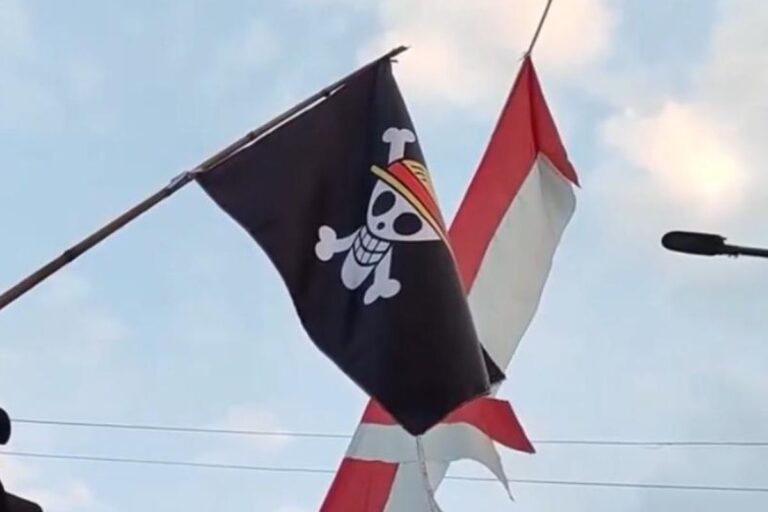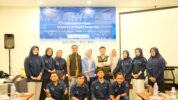Crackdown on “One Piece” Symbols Sparks Human Rights Concerns Ahead of Independence Day
JAKARTA,RAKYAT NEWS – Amnesty International Indonesia has strongly criticized recent raids and intimidation tactics against citizens displaying the pirate flag from the popular anime One Piece. In a statement issued on August 4, 2025, Executive Director Usman Hamid called the government’s response to the phenomenon “excessive and disproportionate,” particularly as it coincides with the lead-up to Indonesia’s 80th Independence Day celebrations.
“The display of the One Piece flag should be understood as a peaceful form of expression and criticism — not a criminal act,” Hamid stated. “The threats of legal action and confiscation of flags are clear violations of the right to freedom of expression, which is protected under Indonesia’s Constitution and international human rights agreements to which the country is party.”
Amnesty condemned specific incidents such as flag seizures in Tuban and the removal of a One Piece mural in Sragen, Central Java, labeling them as acts of repression meant to instill fear. “These actions only serve to silence peaceful dissent and intimidate the public,” Hamid added. “Rather than punishing citizens, the government should address the underlying grievances that have led people to turn to symbolic acts of protest.”
Instead of reacting with harsh crackdowns, Amnesty urged the authorities to focus on resolving the social dissatisfaction expressed through the growing trend of flying the jolly roger, a skull-and-crossbones flag from the anime, which many see as a symbol of resistance against oppression.
Hamid emphasized that the government should not fear criticism or escalate symbolic gestures into criminal offenses. “The response should not be punitive,” he said. “Law enforcement and officials must understand this cultural phenomenon as part of civic freedom, not a national security threat.”
He further pointed out Indonesia’s obligation to uphold the International Covenant on Civil and Political Rights (ICCPR), especially Article 19, which protects the right to freely express ideas — including those that may be considered controversial or offensive. “Governments must protect, not suppress, legitimate public expression,” he added.
The controversy began after a youth in Tuban, East Java, was visited by police, military intelligence, and local officials on August 2 after he posted a photo of himself saluting the One Piece flag. Though no arrests were made, the flag was confiscated, and officers ensured that the photo had been deleted from his phone and WhatsApp status.
Similar scenes occurred in Sragen, where authorities oversaw the removal of a One Piece mural, and in Tangerang, where a senior police official warned that those flying the jolly roger could face “firm action” without specifying the legal basis. High-ranking government figures, including the Coordinating Minister for Political and Security Affairs, have labeled the flag’s display as a criminal offense and even an act of treason.
Since then, social media platforms have been flooded with images and discussions of the jolly roger flown across various homes and vehicles. Observers believe this trend reflects a deeper social frustration, with many Indonesians seeing the One Piece flag as a metaphor for rebellion against authoritarianism and inequality — themes central to the anime’s narrative. (Uki Ruknuddin)



























Tinggalkan Balasan